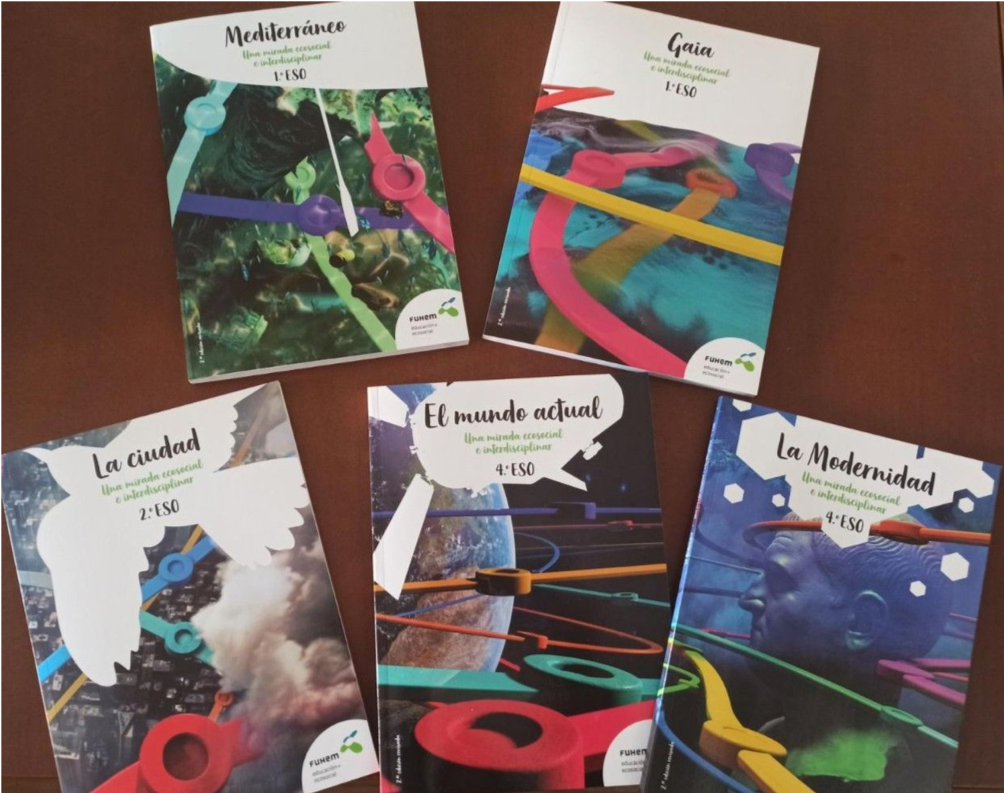
A large part of students still goes through compulsory education without knowing in depth what climate emergency is, without having a holistic view or without having developed empathy. In other words, they lack a comprehensive education with which they can interpret reality critically and be better prepared to face the problems of the present and the future.
Faced with this, more and more teachers and educational centres, including Natives, are trying to work under an eco-social or global citizenship approach. In other words, an approach that provides students with the tools to become, if they wish, agents of change towards fairer, more democratic, and sustainable societies.
One of the main problems faced by teachers in carrying out this eco-social education is that there are few teaching materials to facilitate the task. For this reason, FUHEM is developing classroom materials for the Secondary Education, with a threefold perspective: to offer curricular materials (to address the learning objectives of each subject), interdisciplinary (interweaving all subjects through active methodologies) and eco-social (working from a focus on justice, democracy and sustainability).
Currently, six titles have been published: Mediterráneo y Gaia, La ciudad, El amor and La Modernidad y El Mundo actual. In addition, there are two titles in preparation that will be ready in August 2022: Miradas and La energía. Each unit covers between 3 and 8 weeks of the course.
For example, the Mediterranean studies classical Greece through journeys across the Mediterranean Sea and compares it with how people migrate across it today. Gaia uses the Gaia Hypothesis as a framework to investigate the hydrosphere, atmosphere and geosphere, as well as the worldviews of various sustainable cultures. The city analyses this social organisation based on its eco-dependence and some of its utopian and dystopian futures are projected. The present-day world analyses the moment we are living through games and with the transversal thematic axis of inequalities. Love poses the challenge to students of how to turn their school into a loving space that is not permeated by hatred.
These pedagogical materials go beyond the textbook for a few reasons:
… Although they provide the basis for acquiring the different types of learning, they do not contain “what has to be learnt”, as the pupils themselves develop a significant part of the content. Active and cooperative learning is proposed, where the methodologies are coherent with the eco-social approach. The methodological axis is not the memorisation of the text, but the activities.
… Given the number and variety of activities included, they can be used as a resource bank. Although there is a proposed learning sequence, the structure is flexible and allows the training itinerary to be adapted. Moreover, the virtual classroom activities are self-editable.
… They are designed to work on the same project in the different subjects. As this usually requires a lot of coordination time from the teaching staff, the materials provide a large part of this coordination, facilitating this interdisciplinary work. Moreover, if a subject decides not to use these resources, the unit still makes sense.
… They cater for diversity in the classroom, facilitating maximum learning for all students.
For more information click here.
